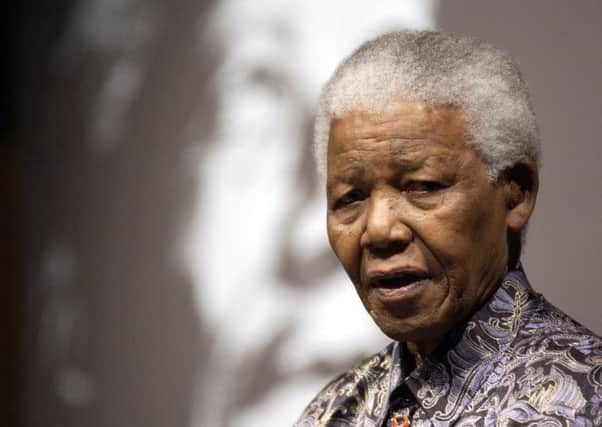Hugh Bayley: Challenge of fulfilling all of Mandela’s goals


I don’t think enough has been said about the role played by Africans in South Africa in securing their freedom. That freedom did not happen because of the global solidarity movement, important though it was, but because South Africans themselves demanded the rights that they now have. Nelson Mandela’s genius was not simply to win the argument and the political struggle, but to win over his opponents and to persuade them that he and the ANC had been right all along.
One of the greatest privileges I have had as a MP of the House of Commons was to be selected to observe the first genuine democratic, all-race elections in South Africa in 1994. The practice was to put an African politician with one from further afield, so that there was a multi-racial observer team, and I had the great good fortune to be twinned with Mose Tjitendero, who was the Speaker of the Namibian Parliament. Just five years before, Namibia had gone through a similar transition managing to move to democracy and majority rule without destroying the state and without that leading civil war and chaos. I learned a lot from him during our three days of observing the election.
Advertisement
Hide AdAdvertisement
Hide AdOn the first day, in one of those long lines of voters that many of us will remember from our television screens,I saw an old African women with snow-white hair, and I asked her how long she had been waiting to vote, because I was trying to find out whether it was taking people two, five or 10 hours, and she simply said: “All my life.”
After the election, I went to the Alexandra health centre, a progressive centre that had fought to extend health care to people of all races during the time of apartheid.
I met a midwife who first qualified in what was then called Northern Transvaal – the Northern Province – who said that when she qualified, she was given her equipment, which consisted of a kettle to boil water to sterilise whatever instruments she might use and a candle so that she could do deliveries in the dark.
We started talking about the sort of support that South Africa would need to build a health care system that provided for all its citizens, and she said that the challenge was not one of resources – after all, in South Africa the doctor Christiaan Barnard had carried out the first heart transplant operation many years before – but of how those resources were distributed.
Advertisement
Hide AdAdvertisement
Hide AdMandela’s first goal was to achieve democracy and universal suffrage, and that goal has been achieved, but his vision went far wider. He wanted to achieve equality and full human rights and justice for all citizens in his country and the wider world, and those goals remain to be achieved. If we want to honour his reputation, we need to work to do our part, as political leaders in our country, to ensure that those goals are achieved.
We therefore need to concentrate on making the argument to the public in our country that we should spend 0.7 per cent of our gross national income on international development. We need to retain the focus of our development programme on the elimination of poverty, and recognise that that requires us to challenge inequality globally, in our own country and in the developing countries that we are seeking to help.
I believe it was a mistake when, earlier this year, the United Kingdom decided to close its aid relationship with South Africa, which is a middle-income country. It does not need our money, but we have a lot to gain from continuing to work with South Africa and its government in examining how they are tackling inequality there and in transferring the lessons we can learn from them back to the United Kingdom and other developing countries where we have programmes.
Unless we deal with the problem of inequality, we will never end the global scourge of poverty.
• Hugh Bayley is the Labour MP for York Central who spoke in the House of Commons debate about Nelson Mandela. This is an edited version.